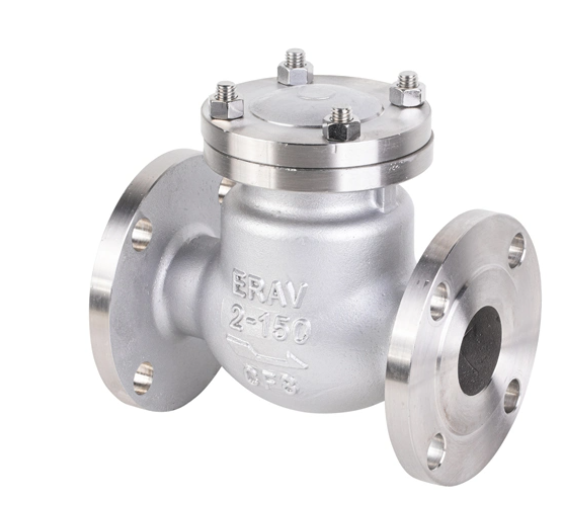Yes, stainless steel check valves are suitable for use in corrosive environments due to the inherent corrosion resistance of stainless steel materials. Stainless steel is widely recognized for its excellent resistance to corrosion, making it a preferred choice for applications where exposure to corrosive media is a concern.
Here’s why stainless steel check valves are well-suited for corrosive environments:
- Corrosion Resistance: Stainless steel contains chromium, which forms a passive oxide layer on the surface of the material when exposed to oxygen. This oxide layer acts as a protective barrier, preventing further corrosion and degradation of the underlying metal. The chromium content in stainless steel enhances its resistance to a wide range of corrosive substances, including acids, alkalis, salts, and chemicals commonly found in corrosive environments.
- Durability: Stainless steel check valves are durable and long-lasting, even in aggressive environments where corrosion can degrade less resistant materials. The corrosion-resistant properties of stainless steel help maintain the structural integrity of the valve, ensuring reliable performance over extended periods of operation.
- Versatility: Stainless steel check valves are versatile and suitable for a variety of corrosive environments across different industries, including chemical processing, petrochemical, oil and gas, marine, wastewater treatment, and more. Their corrosion resistance makes them ideal for applications where exposure to corrosive fluids or environments is unavoidable.
- Compatibility: Stainless steel check valves are compatible with a wide range of fluids, including corrosive liquids, gases, and vapors. They can withstand exposure to aggressive chemicals, high temperatures, and high pressures without experiencing significant corrosion or degradation, making them suitable for demanding industrial applications.
- Ease of Maintenance: Stainless steel check valves require minimal maintenance and upkeep, thanks to their corrosion-resistant properties. Routine inspections and occasional cleaning are typically sufficient to keep the valves in optimal working condition, reducing downtime and maintenance costs associated with corrosion-related issues.
- Variety of Alloys: Stainless steel is available in various grades and alloys, each offering different levels of corrosion resistance and mechanical properties. Depending on the specific requirements of the application, different stainless steel alloys can be selected to optimize performance and longevity in corrosive environments.
Overall, stainless steel check valves are an excellent choice for use in corrosive environments due to their exceptional corrosion resistance, durability, versatility, and compatibility with a wide range of fluids and operating conditions. When properly selected and installed, stainless steel check valves can provide reliable and long-lasting performance in challenging industrial settings.
